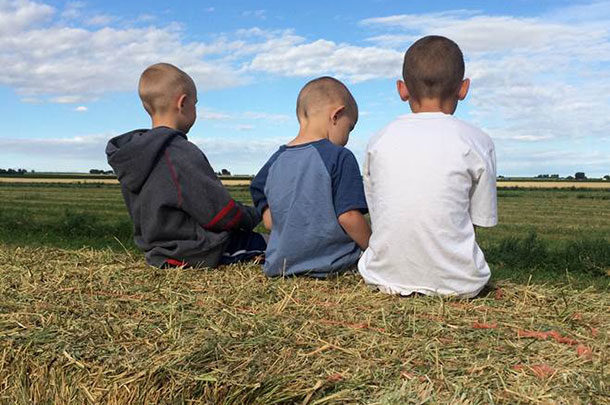There are some characters that fit the mold to be certain, but you and I know that for the vast majority of producers, these stereotypical images are just that – stereotypical.
Stereotypes are powerful. For the most part, we think of stereotyping as negative; however, not only can stereotypes be positive, they are also necessary parts of our thought process. We teach our children that police officers are trustworthy, firefighters are brave and members of the clergy are moral. These may or may not be true, but these occupations get a bit of a pass until we find out differently.
As for being necessary, think about how gnarled air travel would be if airline pilots had to prove their ability to every passenger prior to boarding. We assume that if they are in the cockpit, they have the credentials and skills to get us from one place to the other. After all, they are on the journey with us.
So where do the inaccurate portrayals of ag producers come from? The short answer is, “Us – through apathy!” Allow me to explain. Nearly two decades ago, our pastor’s wife worked as a representative for a major textbook publisher. One weekend, she shared that she had experienced a tough week in Florida at the hands of irate kindergarten teachers. The source of their distress was the company’s book on transportation. The images in the book were made up of cars, trucks and trains from the 1980s, and the children were struggling with naming the vehicles because they were not the same as the ones operating in their neighborhoods.
That same year, we were hosting the local kindergarten classes at our dairy. As the buses pulled up, my wife and I could see the excitement of the children. Many had straw hats on, and their teachers had worked hard to make every student a “cowbell” out of egg carton sections and yarn. One little gentleman stepped off the bus (I will never forget his round little face), looked my wife and me over from head to toe and asked, “Where are all the farmers at?”
His question dealt with the way my wife and I were dressed. We were by no means in fancy attire; we had on jeans, our farm polo shirts and boots. Our little guest admitted he was bewildered because we didn’t look like what he was expecting – no straw hats, bibs or bandanas.
Fast forward a decade and I am an extension agent and Ph.D. candidate at Virginia Tech. As part of my research, I surveyed fourth graders about farmer identities and found that children automatically gravitated to the image of “Old McDonald.” Just as interesting, when I quizzed children about the tools that farmers use, the number one vote collector wasn’t a tractor, but a garden hoe. One of the tools I had in the mix was a book. Overwhelmingly, young children would tell me that “farmers can’t read” or “don’t have to read that well.” Ouch!
Again, I have no doubt that we would not have to travel too far to find a farmer that might fit some of these traits; however, it still amazes people when I share with them that the average dairy farmer in southwestern Virginia is twice as likely to hold a high school diploma and four times more likely to hold a four-year college degree as the average citizen. My data is another decade older now, but at that time, 65 percent of the dairy farmers in our area had a bachelor’s degree or higher. I suspect it is higher today.
So in light of the fact that children couldn’t recognize cars and trucks that were a decade or less old, how is it possible that their images of production agriculture are 50 to 70 years old – twice the age of their parents? Again, we – the producers of today – left our image in the hands of others.
Our issue with the vocational stereotyping of production agriculture hinges on our inaction. Opening ourselves up to the public has more than a few perils, given the agenda that some will surely bring with them as they pass through our farm gates.
However, it is also clear that our industrial apathy has led us to being misunderstood and marginalized by too many in our society. It is up to us to dispel myths about the stereotypical farmer by establishing a solid, recognizable level of professionalism in everything we do. FG
Andy Overbay holds a Ph.D. in ag education and has more than 40 years of hands-on dairy and farming experience.
PHOTO: A survey about farmer profiles revealed a perception among today's youth of farmers resembling "Old McDonald," complete with illiteracy, straw hats, bib overalls and a garden hoe. We need to change that. Photo by Lynn Jaynes.













